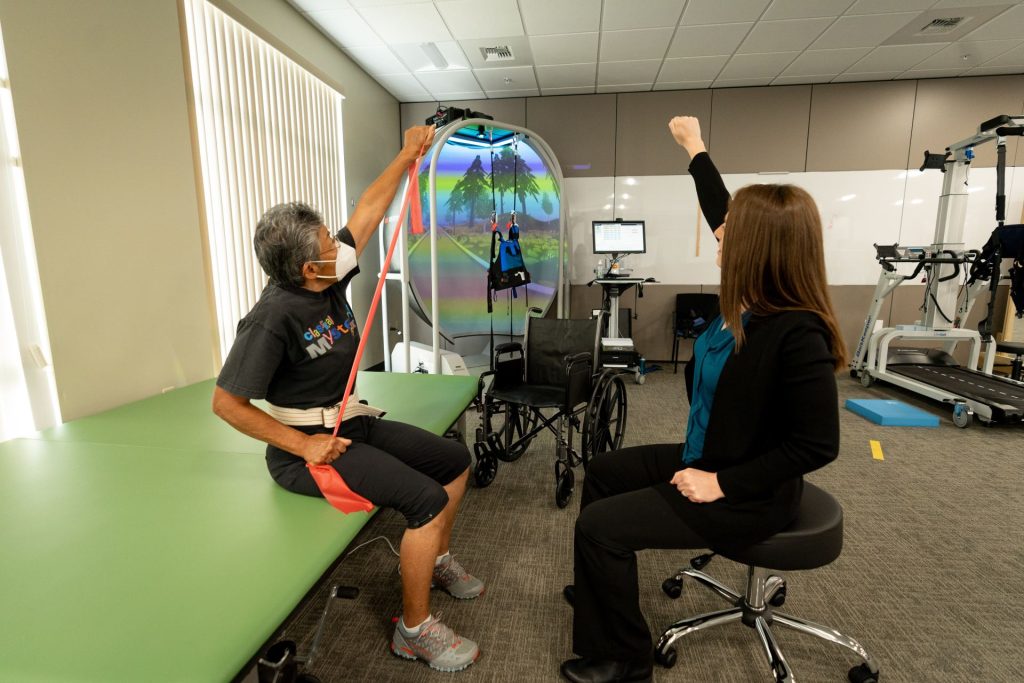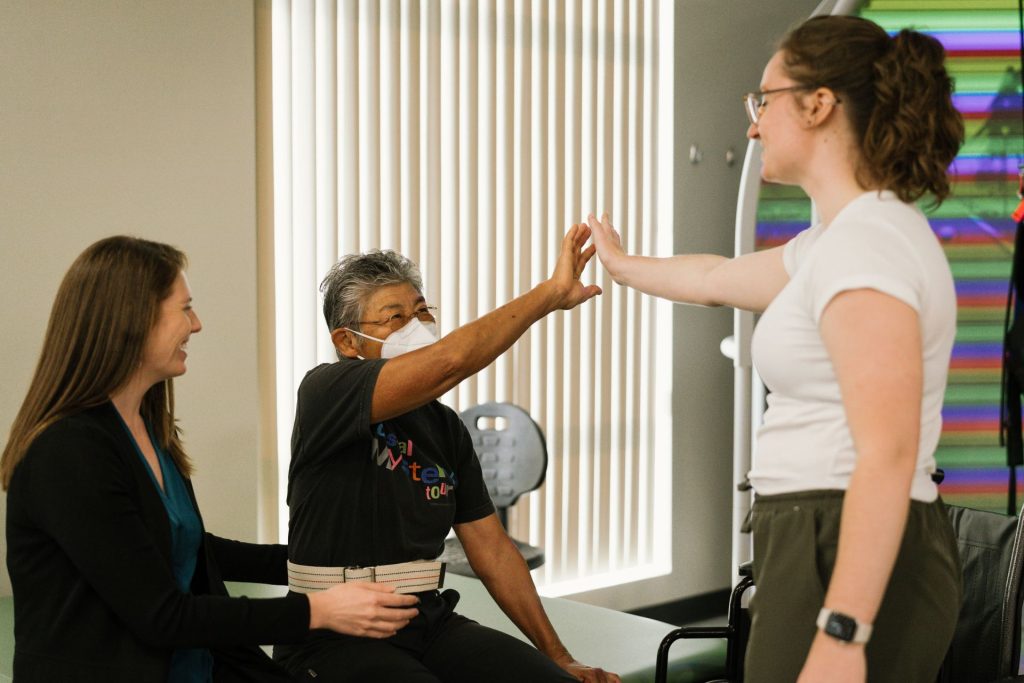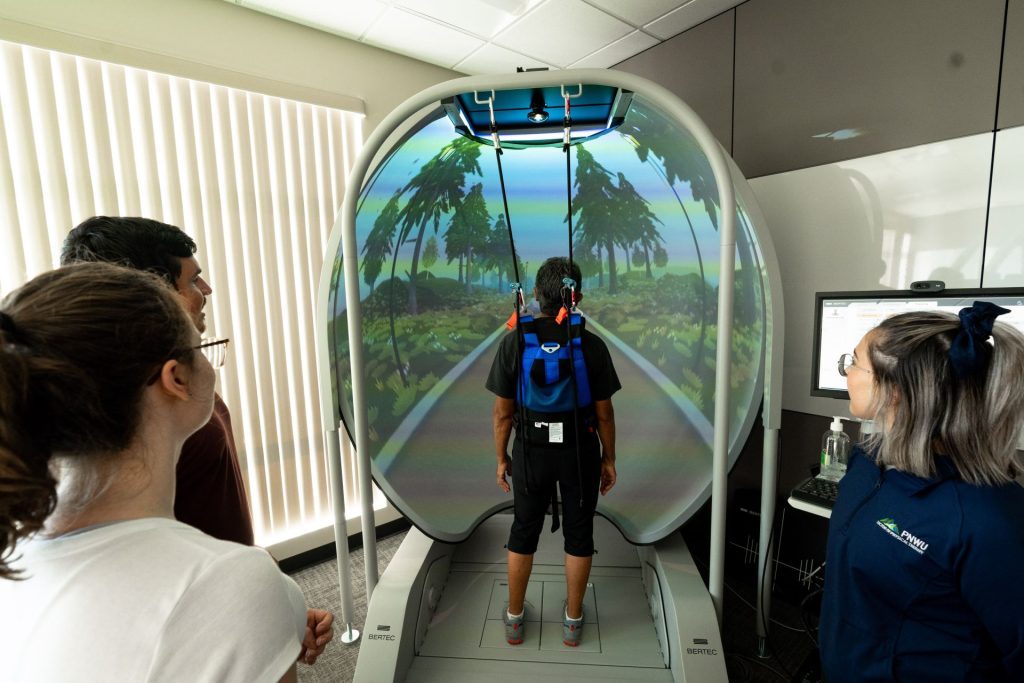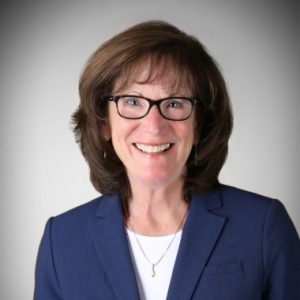The clinical education program at PNWU’s School of Physical Therapy will consist of both full-time clinical experiences and integrated clinical experiences embedded within classroom courses. Clinical education provides the opportunity to apply and solidify classroom didactic knowledge and hands-on laboratory skills (patient handling skills), to direct patient care, under the supervision of a clinical instructor, or faculty member.

The philosophy of the program, as it relates to these experiences, is for the doctoral-level graduate to be educated with a firm knowledge base with an emphasis on practice in rural and medically underserved communities. Additionally, they would be capable of critical thought, leading to effective analysis for implementation of examination techniques, assessment, and interpretation of evaluation data on which to make treatment plans and decisions, as well predicting treatment outcomes based on empirical research.
Full-time Clinical Experiences (3 experiences, 34 weeks total): Students will complete full-time experiences in a variety of settings, with at least one location in a rural or medically underserved area or that serves a medically underserved population, in line with the mission of the PNWU DPT program. In addition, students must complete one clinical in an inpatient setting and one clinical in an outpatient general setting. Full-time experiences occur in years 2 and 3 of the program as follows:
- Clinical Experience 1 – 9-weeks during semester 3 (Summer)
- Clinical Experience 2 – 9-weeks during semester 6 (Summer)
- Clinical Experience 3 – 16-weeks (or two 8-week) during the final semester 8 (Spring)
Integrated Clinical Experiences (4 experiences):Students will complete integrated experiences either off campus at community sites including the Yakima Union Gospel Mission (YUGM) Medical Care Center or on campus at the Center for Applied Movement Science (CAMS) laboratory, which will house a student-run, pro bono community-based clinic.
YUGM: This was established as a free clinic to meet the needs of community members experiencing hardships. As part of a service-learning component of the DPT curriculum, students will engage with healthcare providers in a clinical setting, while providing physical therapy services to men, women, and children (some of who are experiencing homelessness) under the direction of licensed physical therapy faculty.

The goal of this student-run clinic is to increase access to quality rehabilitation medicine and physical therapy services for underinsured and underserved populations in the Yakima Valley while expanding learning, training, and research opportunities for DPT students and faculty to complement the program’s curriculum and faculty research. Students will work with patients with various musculoskeletal, integumentary, cardiopulmonary, and neurological conditions leading to movement dysfunction or for general wellness/exercise programs. Students will also participate in a service-learning project by working in small groups to develop a wellness/prevention program within the community.
CAMS laboratory: This facility houses state-of-the-art equipment for evaluating and treating clients with movement dysfunction with an emphasis on chronic neurological conditions, especially those patients who continue to have movement dysfunction but have no access to physical therapy services. Diagnoses may consist of but are not limited to, stroke, Parkinson’s disease, multiple sclerosis, traumatic brain injury, spinal cord injury, cerebral palsy, developmental delay, balance and gait disorder, fall risk, injuries to muscle, bone, or joints, and functional problems related to chronic conditions.

The integrated clinical experiences improve access to physical therapy services for patients who are uninsured or underinsured in the local community. Not only does this provide a needed service in the community but allows students to have an opportunity to integrate classroom teaching into patient care very early on in the curriculum. The clinic activities support the DPT program’s mission to develop future PT leaders as movement experts who will infuse innovative, evidence-informed practice in rural and medically underserved communities throughout the Northwest.
Students are responsible for all costs associated with all clinical education experiences including, but not limited to, travel, health care, emergency services, drug testing, criminal background checks, fingerprinting, meals, housing, and attire.
Doctor of Physical Therapy Program
Mission and Vision
Accreditation
Curriculum Plan
Clinical Education Experiences
Admissions Requirement
Cost of Attendance
Academic Calendar
Information Sessions
Faculty and Staff
Know the PT Field
Student Financial Facts
SOPT Newsletter
Contact Information
Peggy R. Trueblood, PT, PhD
School of Physical Therapy
Professor and Program Director
509.249.7709
ptrueblood@pnwu.edu

For general questions about the DPT program, please email dpt@pnwu.edu or call 509.249.7725.
Information for the School of Physical Therapy Clinical Partners
Full-time Clinical Education Dates:
| Summer 2024 | Clinical Experience 1/PHTH 600 (9 weeks) | May 20 – July 19, 2024 | Class of 2026 |
| Summer 2024 | Clinical Experience 2/PHTH 700 (9 weeks) | May 20 – July 19, 2024 | Class of 2025 |
| Spring 2025 | Clinical Experience 3/PHTH 790 (16 weeks) | January 6 – April 25, 2025 | Class of 2025 |
| Summer 2025 | Clinical Experience 1/PHTH 600 (9 weeks) | May 19 – July 18, 2025 | Class of 2027 |
| Summer 2025 | Clinical Experience 2/PHTH 700 (9 weeks) | May 19 to July 18, 2025 | Class of 2026 |
| Spring 2026 | Clinical Experience 3/PHTH 790 (16 weeks) | January 5 to April 24, 2026 | Class of 2026 |
| Summer 2026 | Clinical Experience 1/PHTH 600 (9 weeks) | May 18 to July 17, 2026 | Class of 2028 |
| Summer 2026 | Clinical Experience 2/PHTH 700 (9 weeks) | May 18 to July 17, 2026 | Class of 2027 |
Current/New Sites & Clinical Instructors:
- Please contact the Director of Clinical Education, Amanda Adamson, at aadamson@pnwu.edu, if you are interested in partnering with us, to discuss an affiliation agreement, or have any questions/concerns regarding the clinical education program. If you are interested in becoming a clinical site or clinical instructor, please fill out this form.
- For information on CI credentialing, see the Credentialed Clinical Instructor Program Information at the APTA website.
- Students will utilize the APTA Student Evaluation: Clinical Experience & Clinical Instruction Form to provide feedback to Clinical Education Sites/Clinical Instructors.
CPI 3.0 information:
- APTA PT CPI Web Link: Use this link to log in to the CPI or access the APTA Learning Center for training as a new user.
- Training for APTA PT CPI 3.0: use this link to take the free online training, required in order to access the PT CPI 3.0. If you are not an APTA member, you can set up a free APTA account. The academic program will need to know when training is complete in order to assign your user role and clinical site name in the CPI 3.0 system.